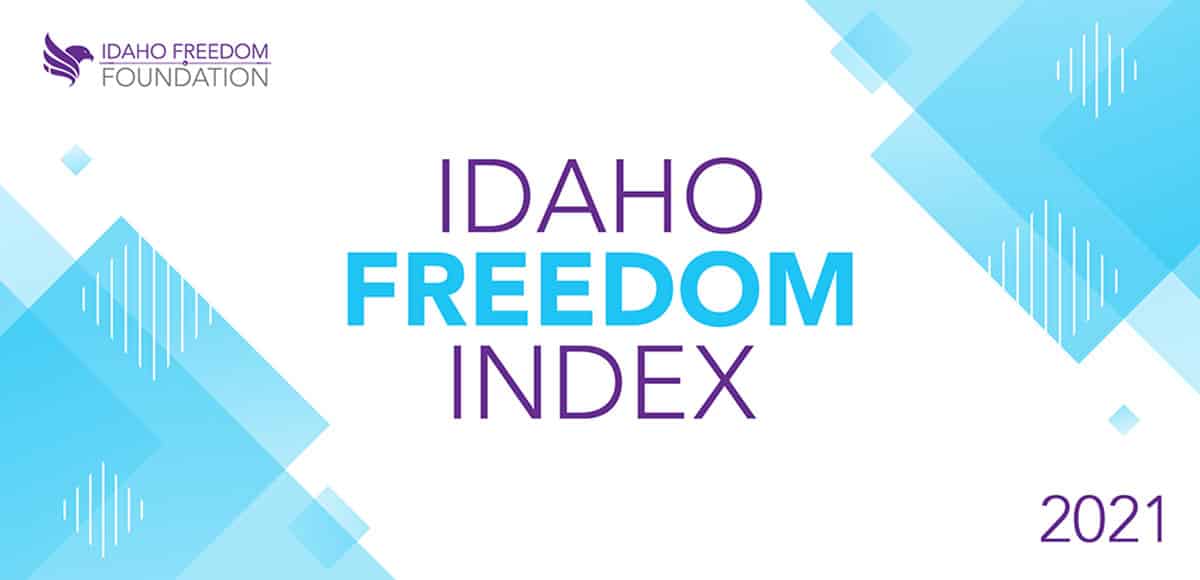


Analysis amended 3/12/2021. This amended analysis is posted for reference. However since the analysis was amended after a committee vote, it will NOT be used for the calculation of the Freedom Index scores based on House or Senate floor votes. Voting for or against or not voting on HJR4 will have no impact on a member’s Freedom Index score.
Bill Description: House Joint Resolution 4 would require a two-thirds majority of the House and Senate to remove certain items from the state’s drug statutes.
Rating: -2
Analyst Note: The rating of House Joint Resolution 4 presents something of a conundrum relative to the Idaho Freedom Index and its static 12-metric review of each bill. The legislation contemplates asking voters to amend the state's founding document, the Idaho Constitution, to say that any vote on future changes to the state's drug laws would require a two-thirds supermajority vote of the House and Senate. The constitutional amendment would do so by adding language to Idaho’s existing constitutional regulations on alcohol, which were approved by voters in 1934 and gave the state control over intoxicating beverages.
HJR 4 would add to the state's liquor control a requirement of a two-thirds vote to change the state's statutory drug prohibitions. Unlike SJR 101, the measure would not cement the progressive-era Food and Drug Administration rules into the state constitution, but it is concerning that the measure does codify the notion of "drug schedules," which are a purely statutory device, into the state constitution.
As noted before, the state constitution is the vehicle that begets statutes which begets administrative rules. Generally, it is not considered appropriate to give a statute constitutional standing.
That said, where SJR 101 and HJR 4 differ (beyond our stated objections to SJR 101's ill-conceived construction) is in the flexibility of the two proposals. SJR 101 would have made changes to Idaho's drug prohibitions impossible, while HJR 4 still allows modifications with a two-thirds vote of the Legislature's two bodies. However, our rating system, since its inception, has been careful to compare legislation to the status quo and not to competing legislation, in this case, SJR 101.
There is a strong argument to be made (and IFF has made it multiple times) that the threshold for the passage of certain legislation should be higher. Notably, we have supported constitutional amendments that would have required a two-thirds vote in order to raise taxes or fees. Some states already require two-thirds or three-fourths votes for the passage of certain legislation, be they tax increases or budgets.
In other states, we have witnessed legislation relaxing drug laws tied to the expansion of government regulatory schemes and major tax increases that prop up new and existing deleterious government programs. Even those who applaud the end to drug prohibitions tend to view such legislation with concern about the secondary effects of new government revenue streams and enlarged government programs and bureaucracies.
It should be harder to pass legislation that may be used to expand government bureaucracy or raise taxes, but it also should not be harder for people to make use of materials that might be used to better their health and wellbeing. This legislation would make it permissible to raise drug-related taxes or impose drug-related regulations by simple majority, if those items were to be presented in a bill separate from that of a bill to relax the state’s drug policies which would require the higher threshold. That is a concern.
Does it give government any new, additional, or expanded power to prohibit, restrict, or regulate activities in the free market? Conversely, does it eliminate or reduce government intervention in the market?
This amendment specifically gives the state Legislature (certainly a government entity) the additional power to prohibit the exclusion of certain items from the drug schedule by increasing the threshold necessary to remove such items from the drug schedule.
(-1)
Does it violate the spirit or the letter of either the U.S. Constitution or the Idaho Constitution? Examples include restrictions on speech, public assembly, the press, privacy, private property, or firearms. Conversely, does it restore or uphold the protections guaranteed in the U.S. Constitution or the Idaho Constitution?
As noted above, HJR 4 would add Idaho’s controlled substances laws to the state constitution, in violation of the principles of legal construction.
(-1)


